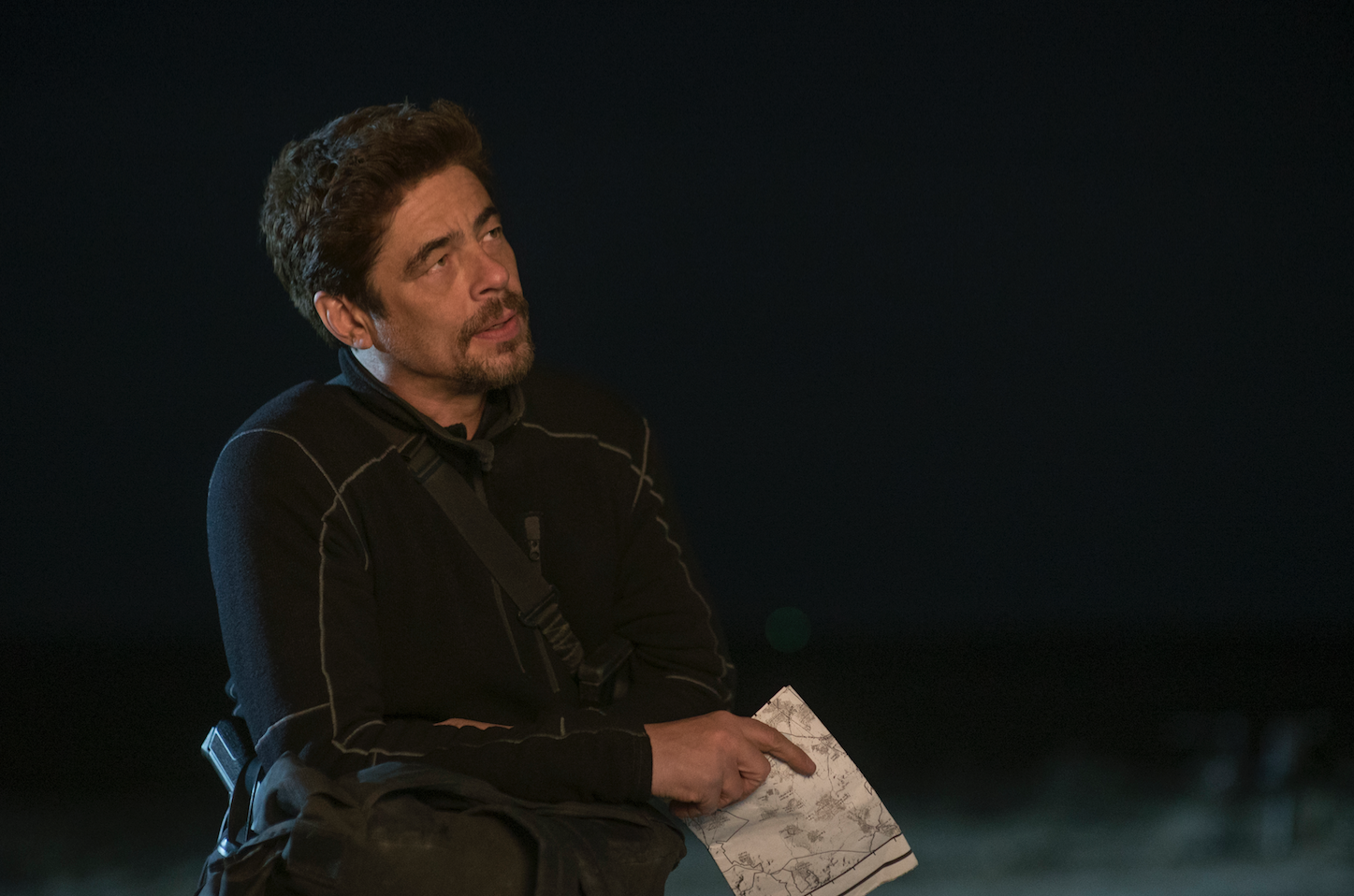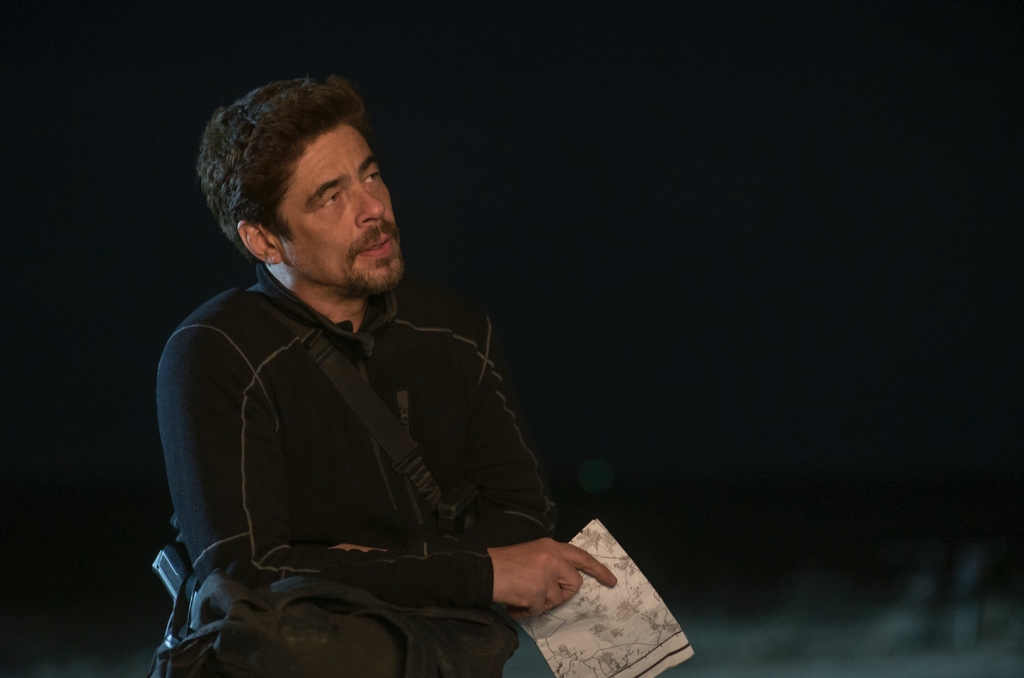Denis Villeneuve’s Sicario was one 2015’s most critically acclaimed films. To me, it was a thriller with questionable treatment of its female lead and US-Mexico relations. The production’s blatant carelessness regarding Mexico and Mexican people in the movie is most evident in their casting choices and its Spanish-language dialogue. People who speak Spanish in the film are, for the most part, not native speakers, which means those behind it couldn’t be bothered to make sure the language sounded authentic. Who would complain, right? American critics weren’t bothered by it, or at least failed to mention it in their reviews.
Crazy as it may sound, these offenses now seem minor in comparison to the horrors that await us when the sequel, Sicario 2: Soldado, hits the big screen in 2018. Helmed by Italian director Stefano Sollima, this new installment brings back Benicio del Toro and Josh Brolin, but loses Emily Blunt and cinematographer Roger Deakins, which is a shame given that the visuals were one of the salvageable elements of the original. This time, its fictional plot isn’t just offensive, it’s dangerously irresponsible against the backdrop of the current political climate.
The movie sees its two protagonists play tricks on their enemies when they discover the cartels are helping terrorists enter the United States through the border with Mexico. It’s a dream scenario for Trump and his deranged lackeys to justify their xenophobic immigration policies. And if you think using the plot of a Hollywood flick as validation is beneath this administration, I don’t know where you have been living for the past year. Jam-packed with powerful men making bad decisions, brutal murders, unnerving sounds, shots of the desert, and no Mexicans in important roles, it feels like a predictable follow up.
Also opening in theaters next year is the crime-comedy Gringo, starring the likes of Charlize Theron, David Oyelowo, and Joel Edgerton, all respectable actors that are in this, presumably, not for the art but the paycheck. Once again, Mexico becomes Americans’ lawless playground where drugs, crime, and crazy adventures take place. The trailer shows Harold (Oyelowo), who works for a pharmaceutical company developing a weed pill, on a trip to Mexico where – inevitably in a film written by someone foreign to Latin America – he is kidnapped by the cartels. This happens when two criminals wearing luchador masks (thank God, I almost forgot this was Mexico) put him in the trunk of a car.
In a latter scene, Edgerton tells a man, whom we assume is a business partner, “You can’t scare me with tales of the big, bad cartels. I know how things work.” Reinforcing the idea of an anarchic country the man replies, “Not in Mexico.” It’s clear that the only reason for a movie like this to exist is to perpetuate the simplistic and dehumanized concept of Mexico that American cinema has repeatedly pushed on its viewers. Aesthetically, Gringo looks phoned in, hardly any aspects about it stand out from this clip. Trashy jokes, stereotypes, and, surprisingly, bad acting, comprise this unnecessary thing. What truly intrigues me is how they got this cast, and if actors read screenplays before agreeing anymore.
Besides sharing the kitschy use of a Spanish word in their title, Sicario and Gringo are part of the same problematic and one-sided vision about the issues that affect both countries. Even if on occasion, these movies take jabs at American culture, Mexico is always on the losing end in terms of representation. Don’t be fooled, the fact that a black man (Oyelowo) and a Latino (del Toro) are cast here does nothing to help their cases. The creative forces behind them are not diverse, and it shows terribly.




